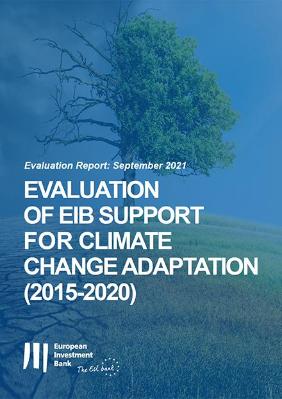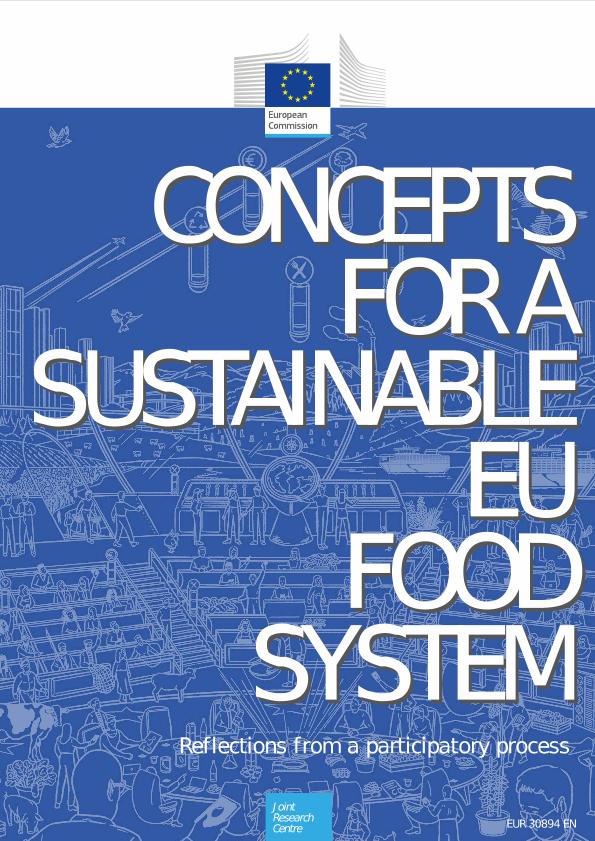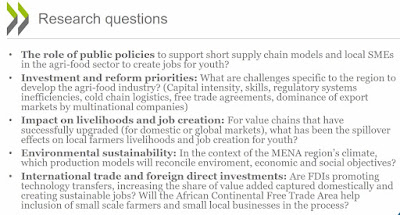5 April 2022. What Digital Cannot Solve for Farmers in Africa: 7 Years of Learning. by AGRA
6 - 8 April 2022. Food Crisis Prevention Network (RPCA) restricted meeting
7 April 2022. The Africa Agri-Tech Development Forum: Supporting Agricultural Innovation and Food Manufacturing with Effective Trade and Industrial Policy
4 - 9 April 2022. Applying agricultural interventions and rural development strategies: Sustainable and bio-diverse agro-ecosystems for smallholder resilience.
- The workshop is organized as part of the project “RLC Platform for Young East African Scientists – Improving the Productivity and Resilience of Smallholder Farming” which is jointly conducted by the RLC Campus Bonn, Center for Development Research (ZEF), University of Bonn, Ger-many, the ‘Alternative Nobel Prize’ awarded organization Biovision Africa Trust, Nairobi, Kenya, the RLC Campus Lund, Centre for Sustainability Studies (LUCSUS), Lund University, Sweden, among other partners.
- Who can apply? PhD students from East Africa that are currently completing their PhD at an East African university. The deadline is March 6, 2022
- See background
6 April 2022. Launch of the 2022–2027 Monitoring & Analysing Food & Agricultural Policies (MAFAP) programme
6 April 2022. Learn & Earn from Natural Farming Videos — Access Agriculture: Expanding Opportunities for Farmers, Women & Youth
6 - 8 April 2022. Food Crisis Prevention Network (RPCA) restricted meeting
7 April 2022. The Africa Agri-Tech Development Forum: Supporting Agricultural Innovation and Food Manufacturing with Effective Trade and Industrial Policy
7 April 2022. Applying lessons from 4R Solutions in a time of uncertainty ( (Right Source @ Right Rate, Right Time, Right Place) by AFAP
7 April 2021. 7:30 pm Healthy Soil - Healthy Planet webinar series, which begins on April 7, 2022.
- 07/04 Webinar 1: Understanding Soil Health
- 14/04 Webinar 2: How to Restore Soil Health
- 20/04 Webinar 3: Proof Soil Regeneration Works
- 27/04 Webinar 4: Careers in Soil Regeneration
8 April 2022. 02:30 PM High-level event: Launching of the Memorandum of Understanding between FAO and Wageningen University & Research
8 April 2022. Investing in Smallholder Farmers for the Future of Africa’s Agriculture: Skoll World Forum Ecosystem Event by Heifer
12-13 April 2022. Regional consultation Africa Stockholm+50
21 April 2022. Financing Climate Action. World Bank 2022 SPRING MEETINGS
21 April 2022. CFS OEWG on Gender Equality and Women’s and Girls’ Empowerment
- Working Group 4: ‘SUSTAINABLE AGRIFOOD SYSTEMS
- Working Group 5: ‘CIRCULAR ECONOMY
12 April 2022, 16:00 - 18:00 JST, 08:00 -10:00 CET. Asian Regional Launch of Digital Agri Hub
12 April 2022. 11:00 - 16:30 CET Open for Business; Strengthening CGIAR - private sector engagement for innovation and scaling
14 April 2022, 15:00 Linking Smallholder Farmers to Voluntary Carbon Market: Application of Innovative Remote Sensing Measurements to Generate Carbon Removal Units in Agroforestry at Scale
19 April 2022. 12:30 CEST. High-level virtual event: Scaling up Agroecology Initiative
- Three years into the implementation of the Initiative, this webinar aims at sharing initial achievements, success stories and collective understanding of the enabling environment that takes agroecology forward on the ground, in different contexts and at different levels.
- Check out the programme and register here or follow via webcast.
20 April – 20 May 2022 E-discussion on local innovation in family farming and agroecology
- FAO Family Farming & Agroecology Community of Practice in Africa is implementing an e-discussion on “The co-creation, sharing and dissemination of local innovations for healthy soils in Africa”,
- co-organized by Access Agriculture, Alliance for Food Sovereignty in Africa (AFSA), Biovision Africa Trust, FAO Family Farming Knowledge Platform, FAO Agroecology Knowledge Hub, FAO TECA Platform, Pan-African Farmers Organization (PAFO), and World Rural Forum.
- During this event, the GDPRD’s WHITE PAPER on “Transforming Food Systems- Directions for Enhancing the Catalytic Role of Donors” will be presented.
- The paper attempts to provide a menu of options for donor engagement in food systems transformation, with focuses on coordination, structural barriers to change, and the importance of systemic approaches.
- This event will look at the actions that are needed to create enabling environments, leverage different pools of capital at the right time, for specific needs, while involving communities and bringing them along in the global low-carbon, resilient transition.
22 April 2022. 14:00 CEST Earth Day Livestream – – Nature in the Race to Zero
22 April 2022. 14:00 CEST. Nakate on Climate Justice and Youth Activism in Africa
- This is a partnership between Village Capital and The Lightsmith Group accelerating 16 companies across Africa and Asia.
- Slot 1 - Absolute Water, Agtuall, Congretype, Freezelink, Hiraya Water, Komunidad Global, Ship60, Worldtech Consult.
- Slot 2 - Agromyx, Aumsat, Cadel Consulting, Crop2X, EF Polymer, Kitovu Technology, Rwanda Bio Solution, Zr3i
- Brief overviews of these companies are available here:
- Slot 1 companies: https://bit.ly/3u9JYsI
- Slot 2 companies: https://bit.ly/3DIV0YU
25 April - 8 May 2022. Convention on Biological Diversity (Part 2) - Kunming, China
26 April 2022. 12:00-14:00 GMT. Successes from women-led agribusinesses in Africa. By Fit For Market SPS COLEACP programme
26 April 2022 from 9 a.m. to 12 p.m., a virtual panel around the theme: "Soaring prices fertilizers: what alternatives to save the 2022/2023 agricultural campaign? ".
28 April 2022. 2 pm CEST. Digitization & Sustainable Agriculture Webinar
- The overall purpose of the regional interaction is: to re-engage and strengthen the GFAR partnership; to give an update on GFAR and our current EC project; to exchange about the recommendations of the independent evaluation that was conducted in 2018; and to prepare for a Partners’ Assembly
28 April 2022. 4:30 pm – 6 pm EAT. 3:30 CEST The 3rd CAADP Biennial Review: From Data to Policy Implementation
- how to foster, scale, and accelerate innovation across the UN System.
- Upon request of the UN Secretary-General, the UN Innovation Toolkit was developed under the leadership of the UN System Chief Executives Board for Coordination (CEB) in close collaboration with the UN Innovation Network and innovators from 30+ UN Entities. The toolkit has been entrusted to UN System Staff College (UNSSC) to ensure dissemination and integration into relevant capacity building and innovation efforts.
28-29 April 2022. GLOBAL LANDSCAPES FORUM: BUILDING A GREEN, HEALTHY AND RESILIENT FUTURE WITH FORESTS
3-5 May 2022. 4th International Conference on Animal Health Surveillance - Bridging Science and Policy - Copenhagen, Denmark.
- The online seminar, is organized by the Global Landscapes Forum (GLF) and the Food and Agriculture Organization (FAO) alongside the XV World Forestry Congress.
- This opportunity is open for all journalists from around the world with a passion for learning and raising awareness about the essential role of forests in the global sustainable agenda.
3-5 May 2022. 4th International Conference on Animal Health Surveillance - Bridging Science and Policy - Copenhagen, Denmark.
4 May 2022 02:30 PM. High-Level Event for the launch of the Global Report on Food Crises 2022
4 May 2022. 10:30 a.m. - 12:30 p.m. CT. Fertilizer Availability and Affordability: Implications for Agricultural Productivity and Food Insecurity
5 May 2022. Tech solutions for individual climate action
- offer young innovators a platform to exchange views on how technology can help individuals make climate-friendly consumer choices, how impactful they are, and the concrete results of such climate tech tools.
5 May 2022. Financing for Sustainable Development Report, by EC/INTPA
4 May, 5pm CEST. Energy Transition in Times of War: a Perspective From the MENA Region. Series: "The Future of Energy"
5 - 6 May 2022. The seventh annual Multi-Stakeholder Forum on Science, Technology and Innovation for the SDGs (STI Forum)
11-13 May 2022. 15th Edition eLearning Africa Kigali, Rwanda.
16-18 May 2022. ISF World Seed Congress
17 - 18 May 2022. Matchmaking event G-STIC Climate Action Programme - Call 2022
24 -26 May 2022. African Agroecological Entrepreneurship & Territorial Markets Convening By AFSA
7 June 2022. World Food Safety Day
16 June 2022, Brussels, Belgium. EFARD Annual Hybrid Meeting. “EFARD for Inclusiveness and Transformative Learning”
17 June 2022. World Day to Combat Desertification and Drought
20 June - 1 July 2022. The Agriculture, Nutrition and Health Academy conference. The call for abstracts is now open.
21-22 June 2022 European Development Days (EDD 2022) – taking place in Brussels and online. The 15th edition will focus on “Global Gateway: building sustainable partnerships for a connected world.”
22 - 24 June 2022. Jobs, innovation and rural value chains in the context of climate transition: Bridging the gap between research and policy by IFAD
17 June 2022. World Day to Combat Desertification and Drought
20 June - 1 July 2022. The Agriculture, Nutrition and Health Academy conference. The call for abstracts is now open.
21-22 June 2022 European Development Days (EDD 2022) – taking place in Brussels and online. The 15th edition will focus on “Global Gateway: building sustainable partnerships for a connected world.”
22 - 24 June 2022. Jobs, innovation and rural value chains in the context of climate transition: Bridging the gap between research and policy by IFAD
27-29 June 2022, Brussels. MicrobiomeSupport
- This high-level conference will bring together stakeholders of microbiome research and the wider food system to discuss opportunities and challenges for harnessing the potential of microbiomes in the agri-food sector, and for human, animal and environmental health.
12-15 July 2022. FAO-CIRAD international conference on Geographical Indication.
14-20 August 2022. 31st International Horticultural Congress, IHC2022, Angers, France
12-13 September 2022. “4th Edition of Euro-Global Conference on Food Science and Technology” (FAT 2022)
- virtually and in Paris, France
- The congress underlines the theme “Harnessing the Latest Innovations and Laying Foreground for Future of Food Science and Technology.”
29-30 September 2022. Africa Dairy & Drink Innovations Summit – Hybrid & Nairobi, Kenya
7-18 November 2022. UN COP27: Sharm El-Sheikh, Egypt
7-18 November 2022. UN COP27: Sharm El-Sheikh, Egypt


















